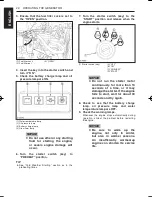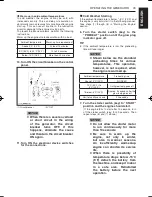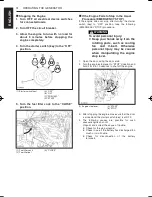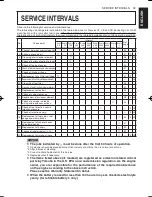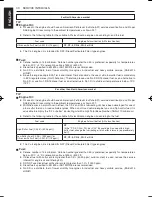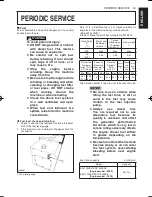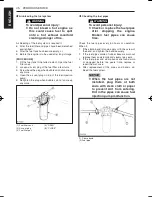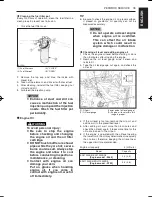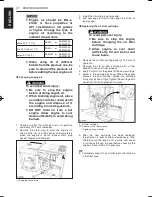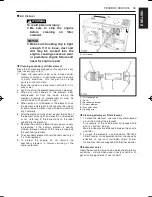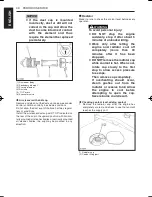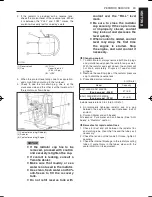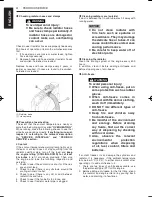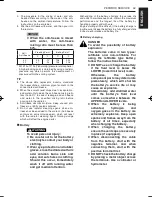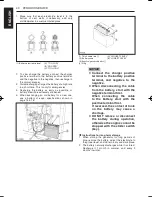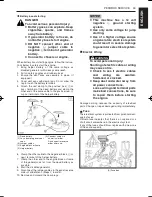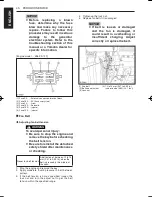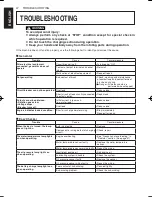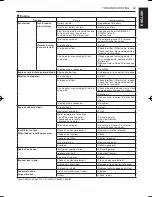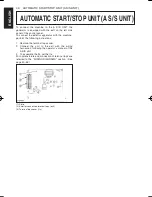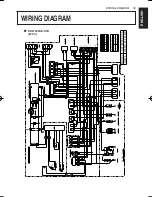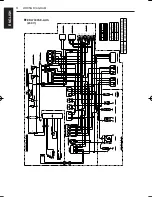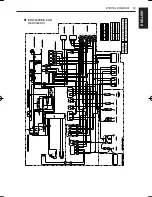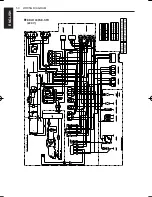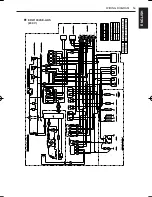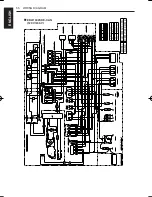
42
E
N
G
L
IS
H
PERIODIC SERVICE
3. The procedure for the mixing of water and anti-
freeze differs according to the make of the anti-
freeze and the ambient temperature. Follow the
instructions on the container.
4. Mix the anti-freeze with water, and then pour into
the radiator.
NOTICE
8
When the anti-freeze is mixed
with water, the anti-freeze
mixing ratio must be less than
50%.
Vol %
Anti-freeze
Freezing Point
Boiling Point *
°C
°F
°C
°F
40
50
-24
-37
-12
-34
106
108
222
226
* At 1.013 × 10
5
Pa (760 mmHg) pressure (atmospheric).
A higher boiling point is obtained by using a radiator
pressure cap which permits the development of
pressure within the cooling system.
TIP
8
The above data represents industry standards
that necessitate a minimum glycol content in the
concentrated anti-freeze.
8
When the coolant level drops due to evaporation,
add water only to keep the anti-freeze mixing ratio
less than 50%. In case of leakage, add anti-freeze
and water in the specified mixing ratio before
pouring into the radiator.
8
Anti-freeze absorbs moisture. Keep unused anti-
freeze in a tightly sealed container.
8
Do not use radiator cleaning agents when anti-
freeze has been added to the coolant. (Anti-freeze
contains an anti-corrosive agent, which will react
with the radiator cleaning agent forming sludge
which will affect the engine parts.)
Battery
WARNING
To avoid personal injury:
8
Be careful not to let the battery
electrolyte contact your body or
clothing.
8
Wear eye protection and rubber
gloves, since the diluted sulfuric
acid solution burns skin and
eyes, and eats holes in clothing.
Should this occur, immediately
wash it off with running water
and get medical attention.
Mishandling of the battery shortens the service life
and adds to maintenance costs. Obtain the maximum
performance and the longest life of the battery by
handling properly and with care.
Engine starting will be difficult, if the battery charge is
low. Be sure to keep the battery in a fully charged state
for best performance and battery life.
Battery charging
DANGER
To avoid the possibility of battery
explosion:
The batteries come in two types:
refillable and non-refillable. For
using the refillable type battery,
follow the instructions below.
8
DO NOT use or charge the battery
if the fluid level is below the
LOWER (lower limit level) mark.
Otherwise,
the
battery
component parts may deteriorate
prematurely, which will shorten
the battery’s service life or may
cause an explosion.
Immediately, add distilled water
until the battery’s fluid level
comes somewhere between the
UPPER and LOWER levels.
8
When the battery is being
activated,
hydrogen
and
oxygen gases in the battery are
extremely explosive. Keep open
sparks and flames away from the
battery at all times, especially
when charging the battery.
8
When charging the battery,
ensure the vent caps are securely
in place (if equipped).
8
When disconnecting the cable
from the battery, start with the
negative terminal, and when
connecting them, start with the
positive terminal first.
8
DO NOT check the battery charge
by placing a metal object across
the terminals. Use a voltmeter or
hydrometer.
9CN-9-U1-E0.indd 47
2013/11/19 13:50:55
Summary of Contents for EDL11000SDE
Page 2: ......


